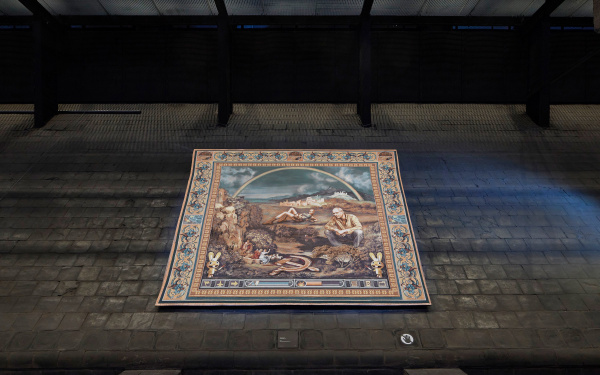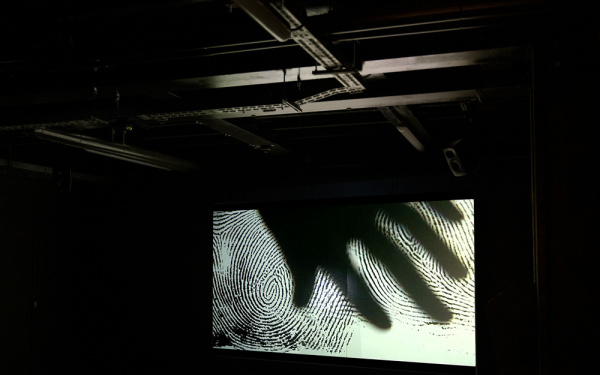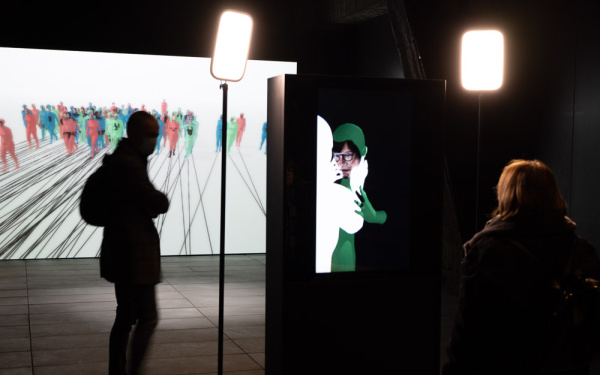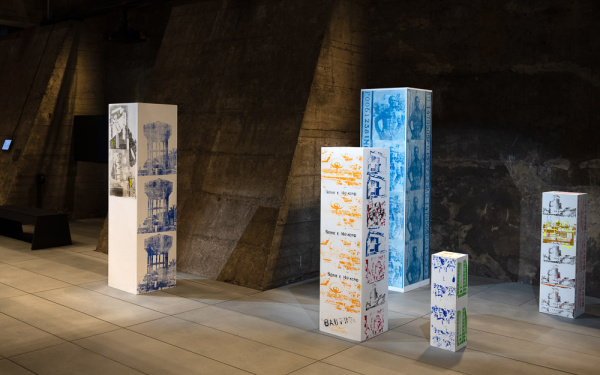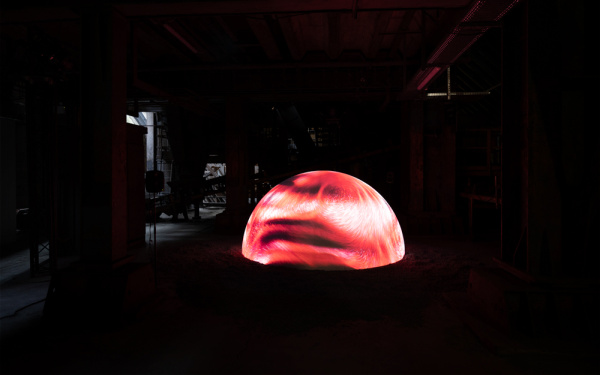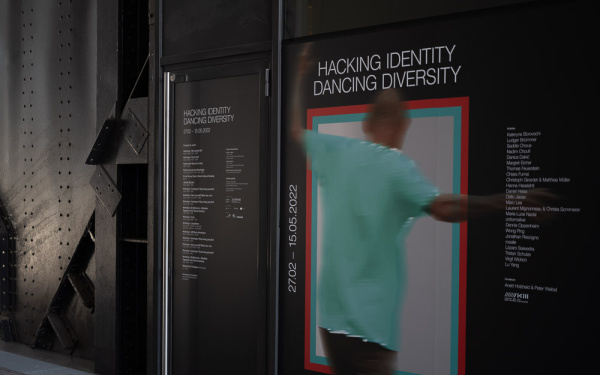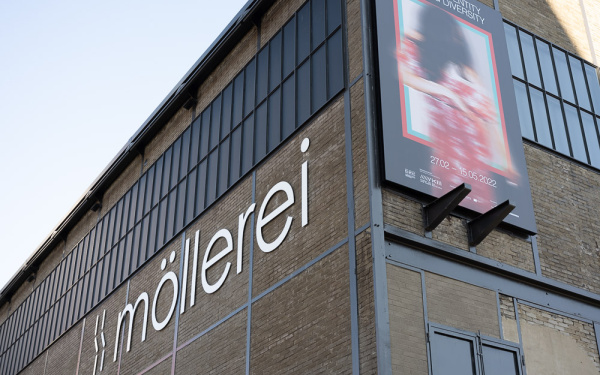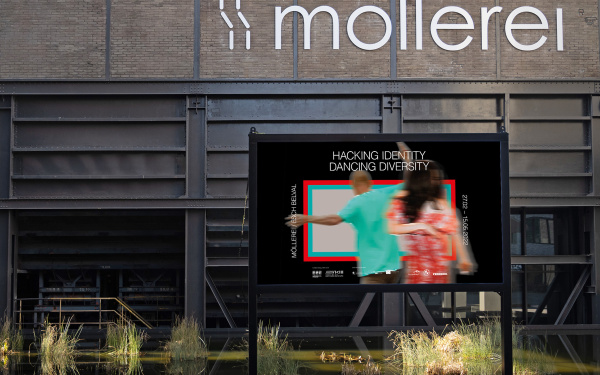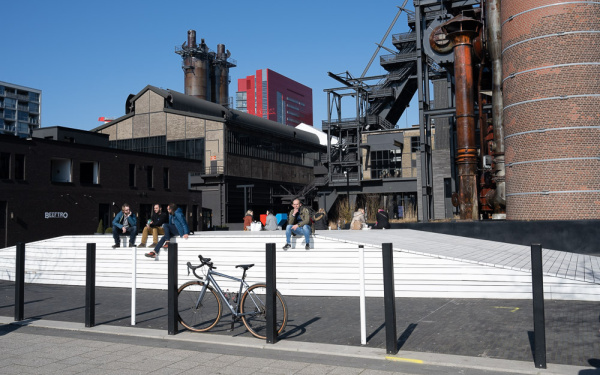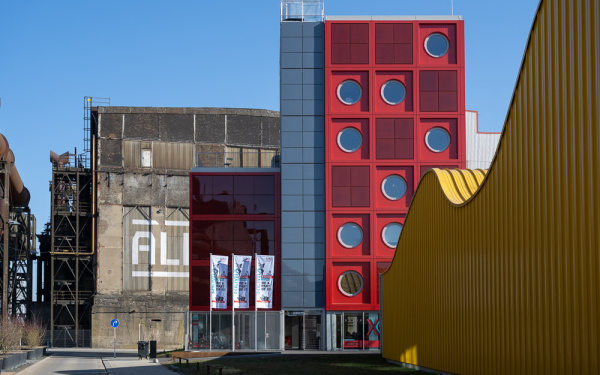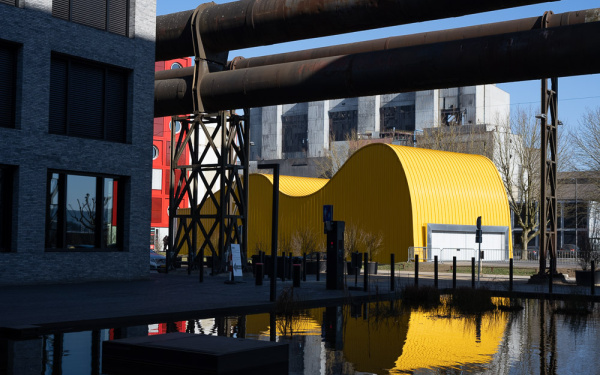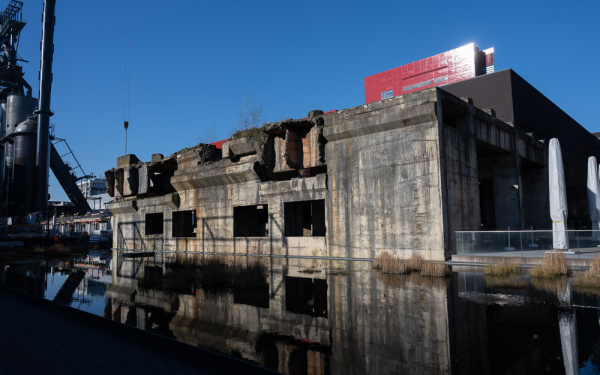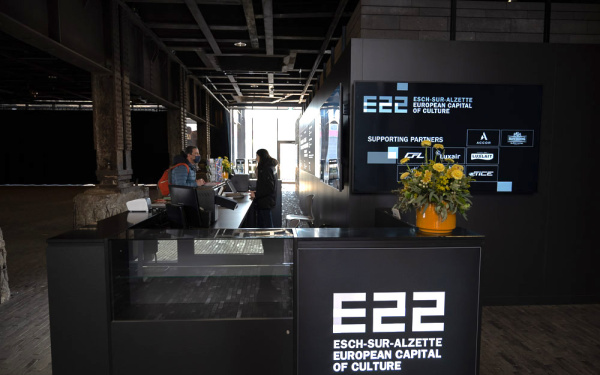- Exhibition
Hacking Identity – Dancing Diversity
The ZKM collaborates with Esch2022 – European Capital of Culture
Sun, February 27 – Sun, May 15, 2022
- Location
- Möllerei / Esch-Belval, Luxembourg
Kicking off the European Capital of Culture year Esch2022 in February, visitors to the Möllerei (Esch Belval, Luxembourg) will have the opportunity to marvel at the transformation of material industrial culture into a versatile media art space.
As part of the European Capital of Culture 2022 program, the ZKM was invited by Esch2022 to design an exhibition offering a new vision for the 21st century in a 20th-century industrial building and make changes of identity tangible. The location, the “Möllerei”, is a converted former warehouse in Esch Belval, once used to store raw materials for the production of cast iron in the nearby blast furnaces.
Where Minette, the iron ore of the region, was once transported via conveyor belts, rail tracks and a gigantic ramp, digitally generated film images now weightlessly unfold; where clouds of mineral dust once billowed up, sound waves of electronic music permeate the air.
Under the heading “Hacking Identity – Dancing Diversity”, 28 contemporary artworks by internationally acclaimed media artists have been installed throughout the historical building. Video installations, large-scale screen projections, participatory artworks and sculptural objects visualize phenomena related to the dissolution, transformation and duplication of identity. On three floors of the Möllerei, visitors can encounter doppelgängers, avatars, iconic figures from the world of gaming, bizarre sci-fi creatures and surprisingly ambiguous mirror images.
The invited artists employ strategies of commentary and defamiliarisation to challenge cultural norms of ethnic, social and gender identity; while the resulting works may be formally dissimilar, they all incorporate “hacking” as an artistic practice. Originally derived from information technology, this term now as a positive connotation in popular digital culture and refers to creative methods of overcoming usage restriction. Applied to the power of definition and to cultural norms, hacking also describes experimental forms of acting for change. As social realities and aspirational ideals in particular reflect messages encoded by media producers, the participating artists explore how media influence processes of identification – ranging from the cult of personality to emancipation, imitation and ironisation.
“Diversity” is a watchword in current social debates about representation, participation and the recognition of minorities. Differing interests and multiple voices can, however, narrow into inflexible lines of identity political confrontation. Starting out from the humanitarian premise that diversity (from Latin diversitas ‘difference’, ‘contradiction’, ‘variety’) is the essential catalyst for active cultural development, “Dancing Diversity” opens up a space of poetic imagination. Dynamics of sovereignty emerge from processes of appropriating what is currently emerging and what has gone before; combining one's own output with what others have produced. The metaphor of dance illustrates the interplay of individual and institutional forms of social cohesion.
With this exhibition, in which a responsibility for democratic openness and a motivation to intervene for change are conveyed through media art, the Möllerei presents itself as a space for new ideas about European community and successful interculturalism.
With works by:
Kateryna Borovschi (ES), Ludger Brümmer (DE), Saddie Choua (BE), Nadim Choufi (LB), Danica Dakić (DE), Margret Eicher (DE), Thomas Feuerstein (AT), Chiara Fumai (IT), Christoph Girardet (DE) & Matthias Müller (DE), Daniel Heiss (DE), Hanna Haaslahti (FI), Délio Jasse (IT), Marc Lee (CH), Marie-Luce Nadal (FR), onformative (DE), Dennis Oppenheim (US), Wong Ping (HK), Jonathan Rescigno (FR/DE), rosalie (DE), Lázaro Saavedra (CU), Tristan Schulze (DE), Christa Sommerer (AT) & Laurent Mignonneau (AT), Lu Yang (CN), Virgil Widrich (AT)
“Hacking Identity – Dancing Diversity” is accompanied by a program of public events, including guided tours, workshops, curators and artists talks. A catalogue published by Hatje Cantz will be issued in Spring 2022.
»Hacking Identity – Dancing Diversity« – Trailer
Hacking Identity – Dancing Diversity
Curators
- Curator
- Curator
Credits
project management: Vincent Crapon (Esch2022 – European Capital of Culture) & Anett Holzheid (ZKM) | project collaborators: Guillaume Taens (Esch2022), Blanca Giménez Calpe (ZKM) | technical coordination: Matthias Gommel, Thomas Schwab | technical project management: Thomas Schwab | scenography: Matthias Gommel | Esch2022 graphic design: Cropmark | exhibition visuals: JUNO | facility manager: Guillaume Taens | set-up team: Andreas Arndt, Martin Boukhalfa, Christoph Dinges, Heiko Hoos, Werner Hutzenlaub, Marius Nestler, Jost Schneider, Olaf Quantius, Niklas Wallbaum | restorer: Marlies Peller | registrar: Natascha Daher
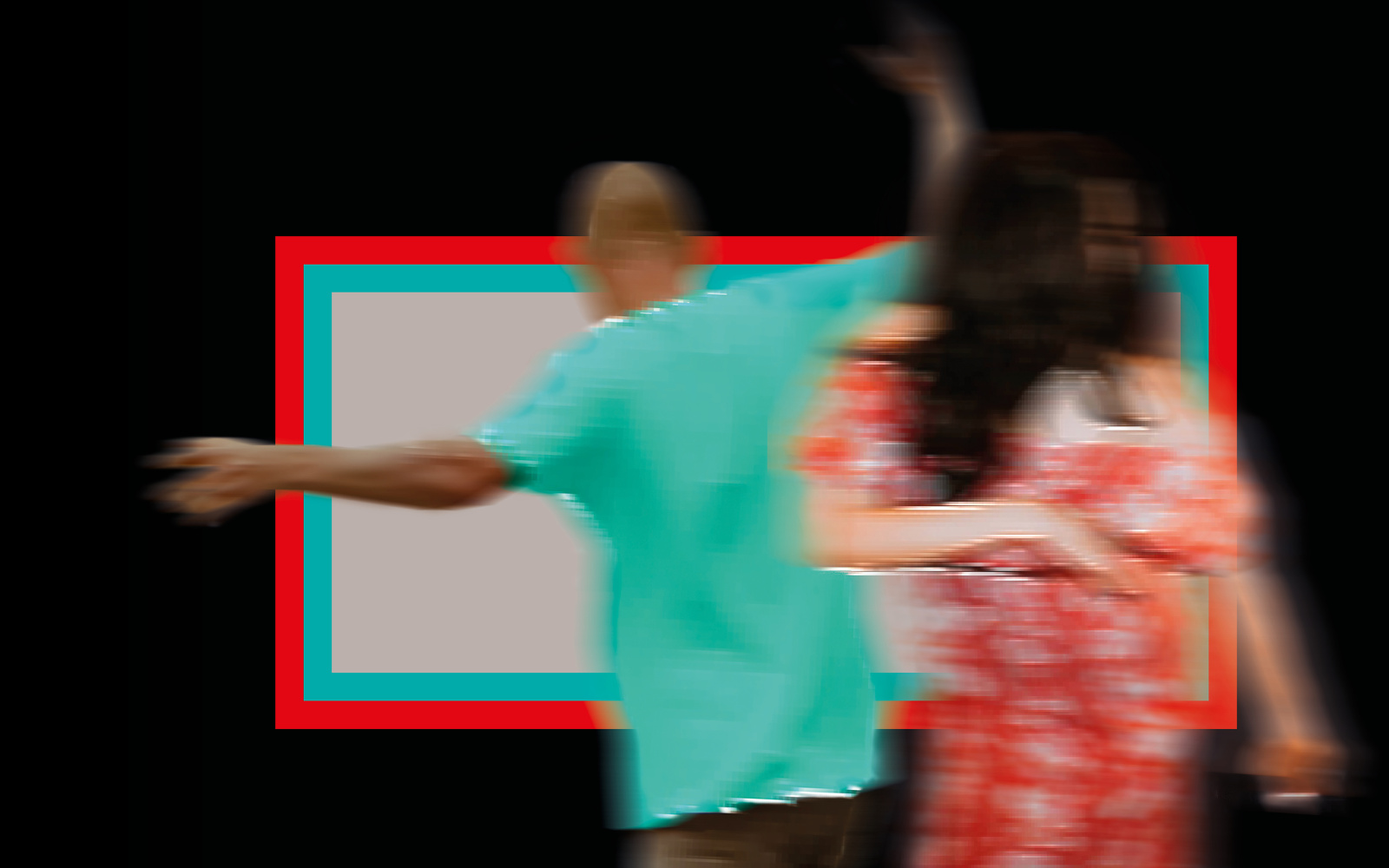
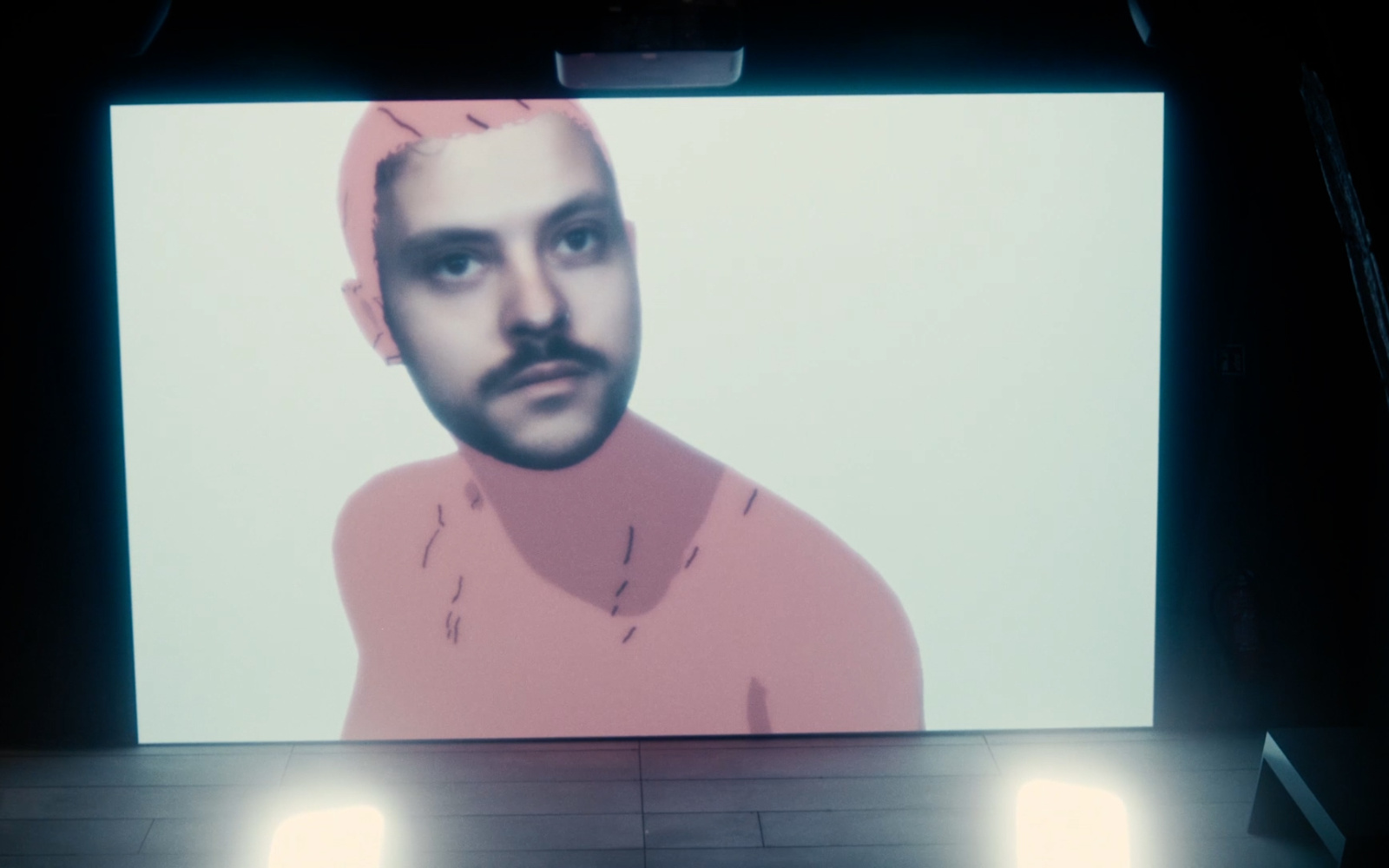
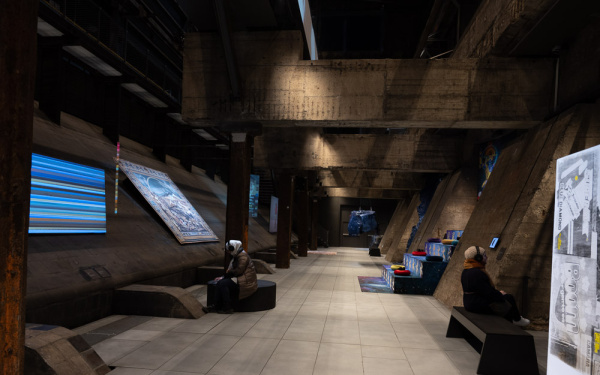
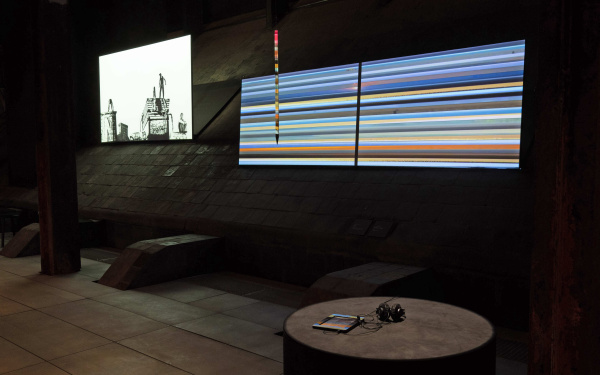
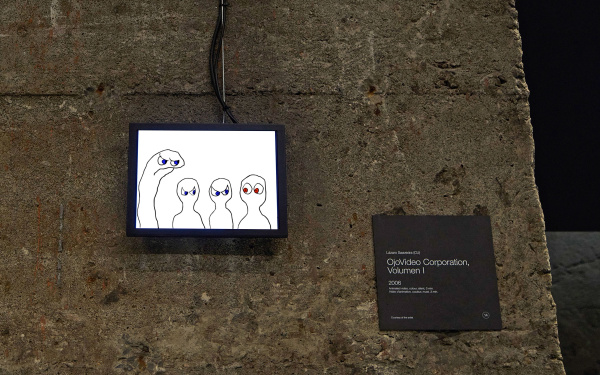
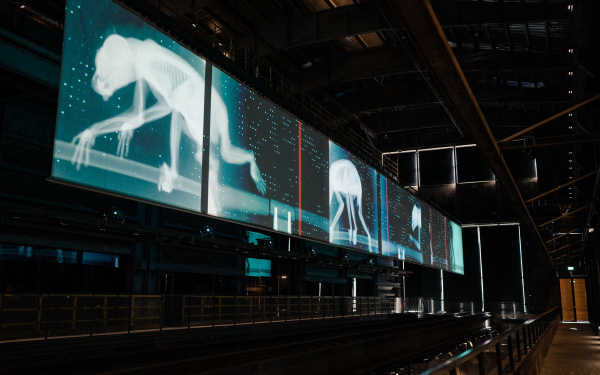
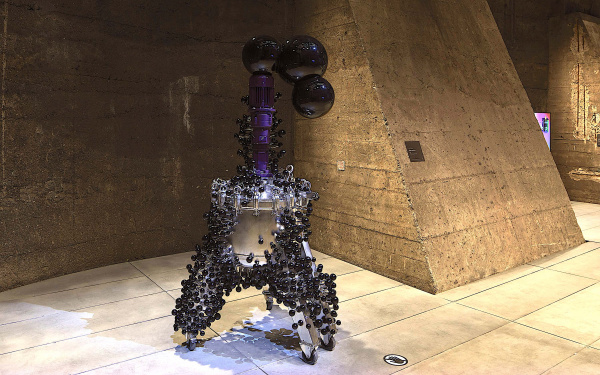
![Nadim Choufi, »A Future Perfect [sic] Life«, 2020, video essay, colour, sound, 27:43 min. Courtesy of the artist / © Esch2022 – European Capital of Culture & ZKM | Center for Art and Media, 2022, photo © Eva-Maria Lopez Nadim Choufi, »A Future Perfect [sic] Life«, 2020, video essay, colour, sound, 27:43 min. Courtesy of the artist](/system/files/styles/img_para_media_slider_gallery/private/field_media_image/2023/02/27/082649/ev_hidd_esch2022_zkm_choufi_cemlopez_web.jpg?itok=fAZzDBq_)
